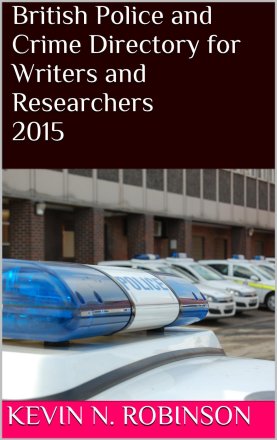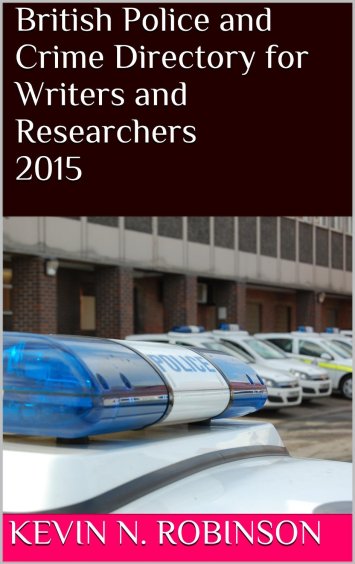 The most comprehensive directory of its kind, the British Police and Crime Directory for Writers and Researchers is the police adviser on your tablet/computer/phone. It is an easy-to-use launch pad for learning more about the police, policing methods and crime investigation.
The most comprehensive directory of its kind, the British Police and Crime Directory for Writers and Researchers is the police adviser on your tablet/computer/phone. It is an easy-to-use launch pad for learning more about the police, policing methods and crime investigation.
To view a sample of the book or to download it, click on the book’s cover to the left.
To learn more about its content, read on.
The five parts of the book look at:
- How to make contact with a particular UK police force, agency or associated government department.
- What information can be provided to the writer/researcher, how and by whom?
- Where to locate (free of charge) some of the very same practice guides the police use to investigate serious and serial crime as well as over 200 other manuals and documents that examine and describe how the police should work in the following categories:
- Recruitment and Training
- Crime and Investigation
- Custody and Detention Matters
- Firearms and Public Order Policing
- Forensics
- Incidents and the Police National Computer and Database
- Intelligence Matters
- Interviewing
- Legislation
- Missing Persons and Children
- Other Law Enforcement Agencies
- Overseas Matters
- Personal Protective Equipment
- Publications about the Police
- Which 100 websites every writer and researcher should know about?
- Where to find 37 authentic video clips describing ways in which the police really work, including following a murder investigation from start to finish and finally
- Which 58 books about the police, policing, crime and writing crime fiction may the writer and researcher find useful?
In a nutshell, you’ll be able to learn about how to become a police  officer: what the application process consists of: what the role entails: what training courses officers can undertake: what technology is available to aid investigations: how an arrest is carried out along with what powers the police have: the procedures they should follow and how they should conduct their investigations and interviews.
officer: what the application process consists of: what the role entails: what training courses officers can undertake: what technology is available to aid investigations: how an arrest is carried out along with what powers the police have: the procedures they should follow and how they should conduct their investigations and interviews.
You will find who within a police force or associated agency can help you: how you can legally obtain information from them: explanations of some of the terminology used: You can also discover how public order and firearms incidents should be policed as well as how missing persons’ investigations should be conducted.
The book will prove indispensable to those wishing to bring authenticity and realism to their writing to create a convincing, believable story.
With the aid of this comprehensive directory, your readers will not be questioning your facts or research methods but will focus on the heart of the matter – “whodunnit”?
Want to see a sample or download your very own copy of this unique book, just click on the book cover to the right.
Had already downloaded your book and have used it twice already. Many thanks, Pat
LikeLike
Hi Pat, thanks for the download and the comment.
LikeLike